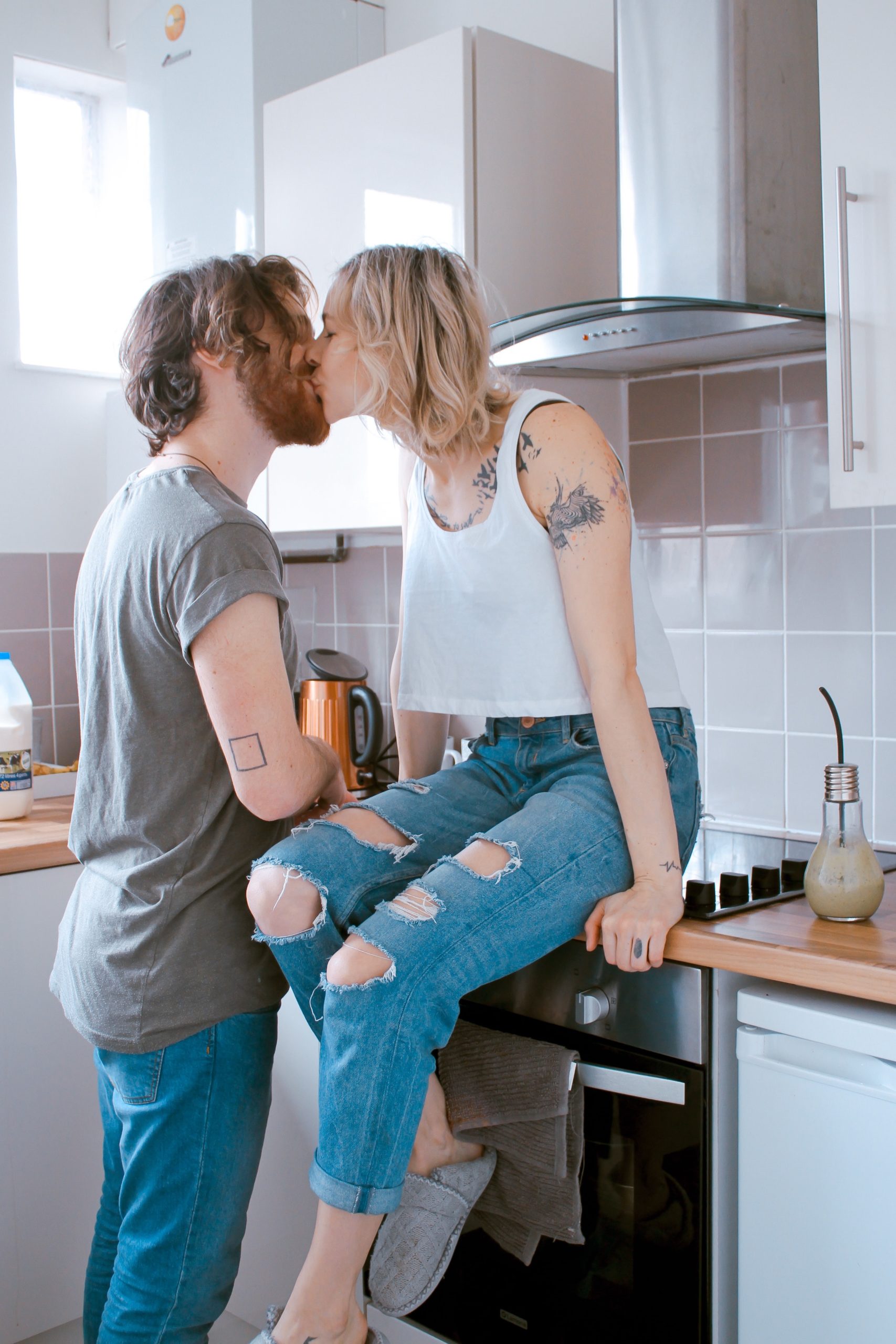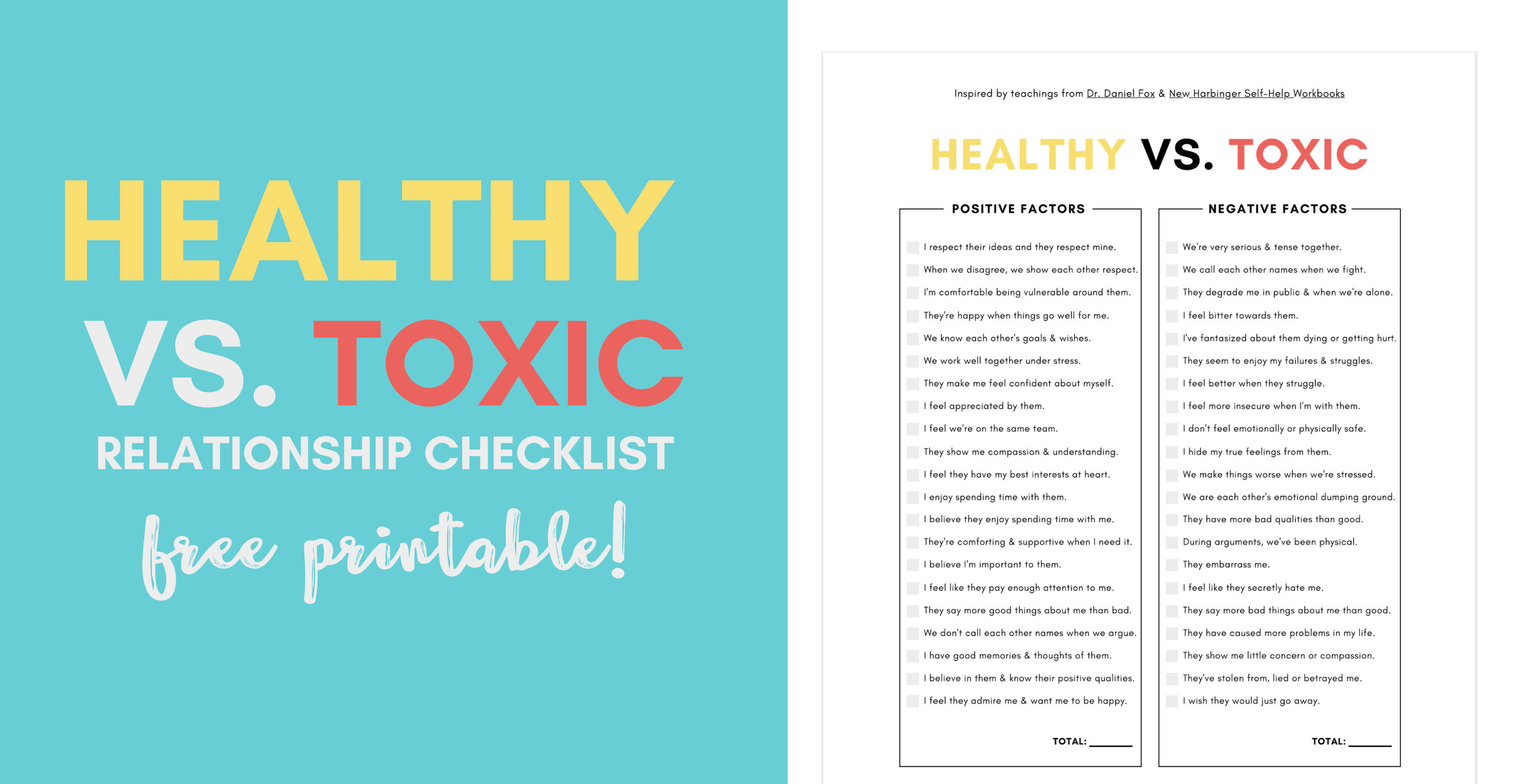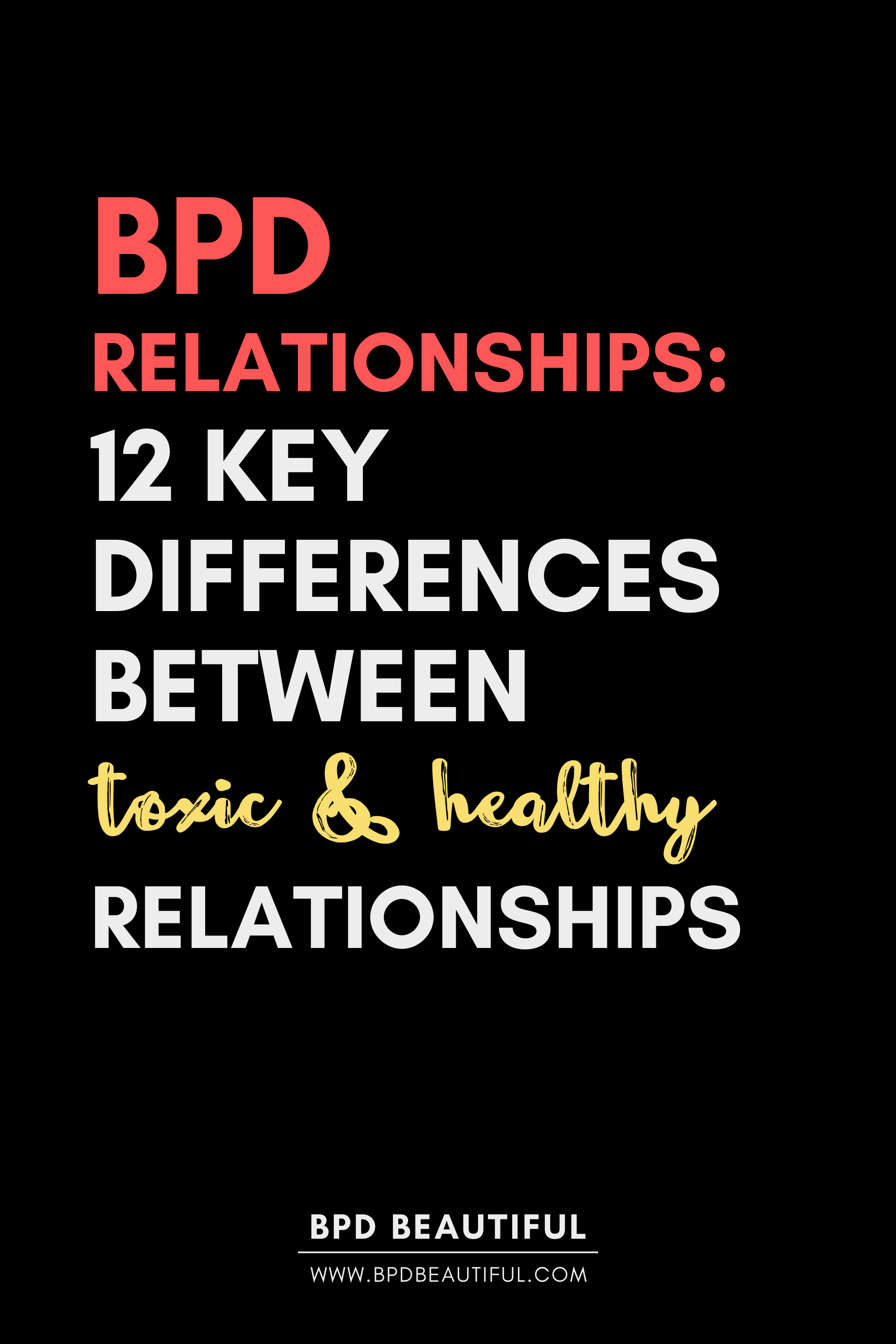Being in a Relationship with Someone who has BPD
BPD relationships (borderline personality disorder) tend to be intense. Oftentimes a relationship with someone who has BPD is compared to being on a rollercoaster. A ride full of extreme highs and lows, twists, turns and loops. If you’re in a relationship with someone who has borderline personality disorder it may be the most passionate but also the most complex relationship you’ve ever been in.
If you’re in a relationship with someone who has borderline personality disorder, you may already know that BPD causes an overwhelming fear of abandonment. After this ingrained fear has been triggered, people with BPD may make frantic efforts to avoid facing the trigger or they may act out in a rage.
A very simplified list of possible BPD triggers for someone with BPD is:
- Not getting a text back
- Canceled plans
- Being left out of a conversation
- A backhanded comment
- Partner going out with friends
The frantic efforts, or BPD episodes, that take place after can happen whether the trigger that caused it was real or merely perceived. People without the condition will very rarely understand the reactions of the person with BPD. And the people with borderline personality disorder very often feel misunderstood and an overwhelming sense of shame as a result.
BPD also causes us to split, or go from one extreme (“everything is perfect”) to its polar opposite (“everything is hopeless”)—this can pertain to various parts of our lives: our relationships, our hobbies, the way we see ourselves, etc.
That’s borderline personality disorder in a very simplistic nutshell. There’s so much more to BPD, but I don’t want to get off track.
I’m sure by now it’s obvious why BPD relationships can be tricky or exhausting. It can quickly become a toxic cycle. If you’re the person with BPD, it’s also extremely hard to get yourself out of the splitting cycle, which can be a major cause for fights—that’s why DBT treatment is essential.
Start Therapy for BPD with Online-Therapy.com - GET 20% OFF!
You can have a healthy relationship when you have or love someone with borderline personality disorder.
Just because a BPD relationship is harder to maintain than a relationship without borderline personality disorder, doesn’t mean it’s 100% hopeless. You can have a healthy relationship when you have or love someone with borderline personality disorder. It’s possible as long as both partners are up for the challenge of learning and growing together.
Is it Possible to Have a Healthy Relationship with Someone who has BPD?
Yes, it’s possible! But it’s not easy (no relationship is, but BPD can definitely complicate things). The caveat is—you can’t fix someone else’s borderline personality disorder and they can’t magically change overnight.
It also largely depends on whether each partner even wants to put the work in to change certain parts of themselves in order to get to a point where they can have a healthy relationship (remember actions speak louder than words). It’s no easy feat for either partner.
Recovery and the success of recovery is up to the person with borderline personality disorder. It’s a long road and it takes self reflection, willingness to face deep rooted fears, swallowing pride, lots of skills building, open communication, mindfulness, taking accountability and most importantly, therapy.
As for the other side of the coin—a romantic relationship with a girlfriend or boyfriend (or spouse) with BPD can be a rollercoaster. It takes an immense amount of dedication to fight the BPD battle with a diagnosed loved one (it should be couple vs. BPD, not partner with BPD vs. partner without BPD). It takes patience, unconditional love, empathy, stress management and learning new ways to communicate. I’d suggest therapy for the partner without BPD as well since getting educated on BPD and learning new skills (to cope with a loved one’s BPD) are both essential to support their recovery.
It’s up to each partner to take care of their own wellbeing while providing love & support to the other. Like with any relationship, it’s a two way street. Refusing treatment or refusing to get educated on BPD (or even worse, pretending it doesn’t exist or playing into the stigma) can be (and should be) a dealbreaker. And of course, abusive behaviour (from either partner) whether it be emotional abuse, verbal abuse or physical abuse is never okay.
BPD Relationships: My Experience
If you’re new to BPD Beautiful, I’m Audrey and this is my BPD wellness blog. I’m a 29 year old mum and I have borderline personality disorder (or emotionally unstable personality disorder, EUPD). Like a lot of people with BPD, I’ve had my fair share of toxic relationships.
My BPD episodes were usually triggered by mundane situations that no one else ever reacted to.
Years before my diagnosis and DBT treatment—I manipulated, controlled and downright abused my old boyfriends. I always knew my behavior was wrong and that my reactions were over the top but throughout my teens and in the beginning of my adulthood, I had no idea why I was the way I was or how to fix myself.
Hell, it took me 14 years alone just to realize my episodes were ultimately caused by my deep rooted fear of abandonment and rejection.
My BPD episodes were usually triggered by mundane situations that no one else ever reacted to. Things like:
- my partner (favorite person) going out with a friend
- my partner showing an interest in a hobby or something other than me
- my partner talking to someone else.
I felt a huge sense of shame for feeling so scared during these daily situations. So I’d try to hide how I felt, which would always backfire and cause major fits of rage and blow ups with my boyfriends.
(Read ‘What Happens During a BPD Episode’)
Despite all that—I wasn’t a lost cause, but back then I sure thought I was.
With many years of CBT / DBT therapy, ongoing work on myself and by the grace of God—I’m confident enough to say I’m finally in a place where I’m able to have a healthy relationship.
Like with all of my other relationships, Brian (my husband) and I started off extremely rocky and with a codependent foundation. This was long before I got my BPD diagnosis. It took 7 years until we felt ready for marriage.
We’re still learning and navigating uncharted waters together—our marriage is by no means perfect. And I won’t say it’s completely BPD-free (being that I’ve been trying to reduce my natural “all or nothing” tendencies).
I still have episodes, but now they’re more predictable and I know new coping methods & communication skills to help de-escalate them. Brian better understands my reactions and can usually effectively communicate or otherwise deal with me while I’m raging or anxious. He’s been a solid rock in my life and I’m grateful to have him.

Healthy BPD Relationships vs. Toxic BPD Relationships
Keeping a healthy relationship, with BPD or without it, is not easy. Very obviously. The divorce rate is 42% in England and 50% in the United States.
Acting in a way that makes having a healthy relationship possible doesn’t seem to come naturally for most people—whether you have borderline personality disorder or not. But it’s especially hard when intrusive BPD thoughts come up or a trigger you don’t feel strong enough to overcome interrupts your day.
While it’s challenging and will, without a doubt, test your limits—taking accountability of your actions and putting the work in to grow yourself and your relationship, is imperative and highly worth it in the end.
Below I’ve listed the top 12 key differences between a toxic relationship and healthy relationship. There are specifically catered for BPD relationships. And they’re things that I’ve either seen first hand in my own relationships or have seen indirectly in others’ relationships.
(Read ‘Ultimate Guide to Toxic Friendships’)
BPD Relationships: Signs of a Toxic Relationship
1. Instead of accepting your partner for who they are—one or both partner(s) will try to change the other. This causes a power struggle or causes someone to pretend to be someone they’re not.
2. Fights can be explosive. There’s yelling, name calling. Objects are thrown. There’s physical, emotional or verbal abuse from either partner.
3. You or your partner use the silent treatment, also known as stonewalling.
4. There’s a lack of respect for each other’s goals, loved ones or hobbies. Either outwardly or subtly.
5. Feelings are invalidated on a regular basis—an unhealthy couple will mock, ignore or laugh off each other’s emotions, thoughts, ideas or opinions. As a result, communication decreases and resentment builds.
6. One or both partners will share intimate details about the other with people outside of the relationship. Or they vent about them to their parents, family or friends.
7. There’s jealousy or controlling behavior from one or both partners.
8. There’s cheating, lying or manipulation.
9. The following can go for both partners, the spouse with BPD or the spouse without BPD: You have no desire to do better in life or change yourself. Instead, you feel stuck and lack motivation. Your partner (intentionally or unintentionally) brings out the worst in you, triggers you in a debilitating way (& maybe even seems to enjoy it), is a bad influence, refuses to seek treatment OR doesn’t believe BPD is real.
10. Things are constantly going up and down…from ecstatic to hopeless. It’s BPD on steroids. This can happen either externally between both partners or quietly in the partner with BPD’s thought processes (aka BPD Splitting). Regardless of the way these frequent shifts in emotion are expressed—both partners are in a never ending cycle of fantasy like romance, perfection, tension, epic fight, rage / abuse, fantasy like romance, perfection, tension, epic fight, rage / abuse – repeat… And there’s no work being done to stop it.
11. You spend almost no time apart. You’re always together. It feels like you’re almost one person.
12. You mostly (over a long period of time) feel resentment or bitterness when thinking about your partner or your relationship.
BPD Relationships: Signs of a Healthy Relationship
1. You accept each other’s quirks, flaws and personalities. There’s no power struggle, just acceptance. It’s comforting to be your complete self around them.
2. Arguments are fair. There’s no name calling or yelling. You communicate through issues and work together. You compromise.
3. Neither of you use the silent treatment. You both give each other space to clear your heads when it’s needed. But this need is verbalized beforehand to prevent hurt feelings, misunderstandings, unnecessary (BPD) triggers or (BPD) splitting.
4. You have mutual respect and care for each other’s hobbies, goals and loved ones.
5. You prioritize each other’s feelings and allow them to be easy to discuss.

DOWNLOAD FREE PRINTABLE
Measure how healthy or unhealthy your BPD relationship is with the Healthy vs. Unhealthy Relationship Checklist.
6. Both partners set and maintain healthy boundaries. There’s no oversharing details or venting badly about each other to other people. You both make it a point not to answer for the other.
7. Each partner is protective about the other in a non controlling or non jealous way. There’s a BIG difference between being protective (“Are you sure you want to walk home on that road after dark? It seems unsafe.”) vs. being controlling (“you can’t go out tonight because I don’t want you walking on that road after dark”).
8. You have mutual trust. In a healthy relationship, the partner or spouse with BPD (while splitting or having an episode) is able to remind themselves their partner ultimately has their back. They can confidently say from real past experience (not perceived or false memories) that their partner wouldn’t hurt them intentionally or play mind games with them. Being able to do this helps them bring themselves back to a more reasonable mindset (this is attainable with treatment and a lot of practice – in all honesty, this is still a struggle for me but I’m working on it).
9. Both partners support each other’s growth. You inspire each other to be better people. You both want to be your best and healthiest for them because you know it has to be done in order to keep them in your life. Each of you accepts how hard and uncomfortable change can be, but do it in spite of that—because having your partner in your life is a priority. Eventually (if not from the start) the change you were originally doing for them becomes something you also do for yourself which your partner encourages. If you’re the one with borderline personality disorder, your partner believes BPD is real and is a serious condition. They educates themselves about it. They support your treatment and recovery. If you’re the partner without BPD, your partners takes BPD treatment seriously (goes to therapy, educates themselves, joins a DBT group, etc).
10. For the most part — things feel steady, secure, dependable and at times kind of boring. You still show affection, occasionally flirt, goof around and prioritize spending time together but the early stage / romantic high is gone. It’s not like a roommate but it’s not a new boyfriend sleeping over either. Your BPD may sometimes tell you that because it’s boring at the moment, things are bad but you can recognize this isn’t the case. Healthy BPD relationships don’t look like the movies. They are not nearly as entertaining. You’re aware of that, accept and embrace it.
11. You both see each other as individual people, and don’t feel like you’re an extension of each other. You spend time alone and maintain a life outside of each other. You both make time for other interests and friendships.
12. You mostly (over a long period of time) feel grateful, content and at peace when thinking about your partner or your relationship.
Is it Worth Dating Someone with BPD?
This depends on their commitment to their recovery, their interpersonal & communication skills, your overall compatibility and lastly – your own tolerance to stress and others’ emotional needs. People with BPD who are in treatment or in remission can actually make great partners – they tend to be fiercely loyal & protective of their loved ones and they can display a lot of emotional empathy & compassion.
Others with BPD may be better off staying single, at least until they’ve progressed more in their treatment or have a greater level of self awareness and control over their emotions.
Likewise, there are also people without BPD who should NOT date someone with borderline personality disorder: those with low levels of empathy or with lots of untreated narcissistic traits, or those who don’t take mental health seriously, should avoid people with BPD. You won’t do them any favors by pursuing a relationship with them.
(Read ‘The BPD & NPD Couple’)
Those who have high levels of anxiety &/or their own struggles with emotion regulation may also have a harder time coping in a relationship with a partner with BPD. In this case, both parties doing individual therapy can make it easier.
What is the Best Partner for Someone with BPD?
If you’re a laidback person who goes with the flow, has empathy & patience and can stay calm / supportive when someone is dealing with their own crisis – you may do well in a relationship with a borderline in treatment. It also helps tremendously to have your own healthy communication and emotion regulation skills. Knowing how to validate someone else’s emotions is also key to having a healthy BPD relationship.
If your pwBPD is doing DBT, you should make it a goal to learn DBT skills as well – especially the skills found in the interpersonal effectiveness module. This way you can both utilize the skills together during conflict or disagreements.
BPD Resources
Manage your BPD symptoms with a printable workbook. Book an affordable coaching call with Audrey. See our recommended list of books about BPD. Download a free meditation app. Get 20% off your first month of online therapy with code THERAPY20 (financial aid options now available at checkout!).
Start a Discussion
For those who have experience with BPD relationships – Have you ever been in a toxic relationship? What are some of your own warning signs of a toxic relationship? Are you in a healthy relationship? What have you and your partner done to get to a healthy place? Please share your story or experience in the comments. I love connecting with others who also struggle with borderline personality disorder,
Pin This Post
Liked this post? Please help support BPD Beautiful and spread BPD awareness by pinning it on Pinterest.



Comments
One response to “BPD Relationships: 12 Key Differences Between Toxic Relationships + Healthy Relationships”
I think you are spot on with this post. I shared it on Facebook, though with a restricted audience.